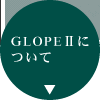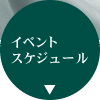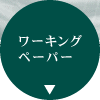予定表 -詳細情報-
| 件名 | WS 増田宗人氏 |
| 開始日時 | 2012年 12月 12日 (水曜日) 17時30分 (GMT+09:00) |
| 終了日時 | 2012年 12月 12日 (水曜日) 18時45分 (GMT+09:00) |
| 場所 | 現政研会議室(1号館2階) |
| 詳細 | 政治の経済分析セミナー 【報告者】 増田宗人氏(日本銀行) 【タイトル】Economic Crisis and Household Behavior: Micro Data Evidence in Japan 【概 要】 Japan has experienced economic crisis on 1997 and 1998. In such a rare event, household’s income is likely to decrease and some households feel the “unemployment fear.” The question is how different the household states are without the effect of economic crisis. To answer this question, we use the poverty measure. Using micro data, the structural probit method suggests that there is a negative simultaneous relationship between income and unemployment fear. Then, we can get the different incomes under different regimes divided by unemployment fear. We calculate the poverty with these incomes. Our conclusion is that unemployment fear, i.e. economic crisis affects the poverty of households. |
| カテゴリー | ワークショップ・セミナー |








